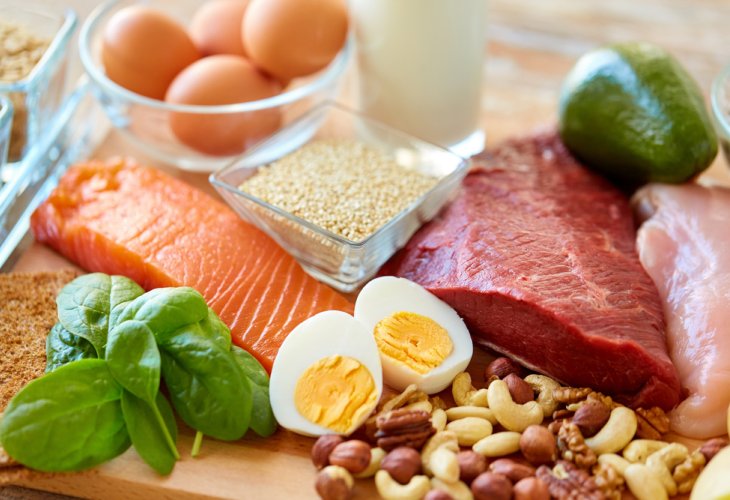New Study Reveals: Protein Consumption Influences Our Dietary Choices Throughout the Day
People trying to lose weight who choose even 2% more protein tend to select healthier foods. Participants consumed more green vegetables and maintained lean muscle mass.
 (Photo: shutterstock)
(Photo: shutterstock)A study conducted at Rutgers University in New Jersey, published in the journal Obesity, found that choosing to eat more protein can help people avoid losing lean body mass, which is essential for proper functioning and health. It was also found that those who consume more protein during a weight loss regimen make healthier choices, consuming more vitamins and minerals while maintaining muscle mass.
The research team examined data from several studies on weight reduction and found that increasing protein intake in the diet, even by a small amount—only about two percent—can positively impact dietary choices.
The study included 200 people aged 24 to 75 with overweight or obesity. All received guidance from a dietitian to reduce 500 calories per day for six months and to consume 18% of the calories from unprocessed proteins (poultry, unprocessed red meat, fish, legumes, and dairy products).
Participants were divided into a group with lower protein intake (58 grams per day) and a group with higher protein intake (79 grams per day), with key findings including:
- Both groups lost the same amount of weight—about 5% of their body weight
- People who consumed more protein generally chose healthier foods
- In the high-protein intake group, the intake of most vitamins and minerals (A, B, C, D, and K) was higher compared to the group that consumed less protein.
- People who consumed more protein included more green vegetables in their diet and less sugar and processed grains.
- People who consumed a higher amount of protein managed to maintain their lean muscle mass during weight loss.
It is important to note that body composition refers to the ratio of fat, muscle, bones, and other tissues that make up the body. Body weight consists of lean body mass and fat mass.
Lean body mass includes the skeletal bones, internal organs, blood, and muscles.
Fat Mass includes fat tissues and is divided into two: Essential fat—this fat is essential for proper functioning and protection of internal organs. It is found in areas like the bone marrow, kidneys, central nervous system, heart, lungs, and more. In men, essential fat is about 3% of normal body weight, and in women, about 12% of normal body weight.
Stored fat is non-essential fat. This fat is mainly stored in fat tissues beneath the skin, between muscles, and around internal organs. The role of stored fat is to protect against injuries, maintain body heat, provide energy at rest and during physical activity, and more.
The study’s author, Prof. Sue Shapses, said: "It’s somewhat surprising that increasing protein intake, even in a small amount, during the diet was accompanied by a higher intake of green vegetables and a reduced intake of non-whole grains and terminal sugar. But that is exactly what we found." One of the researchers, Dr. Anna Ogilvy, added: "The effect of protein on diet quality has not been previously examined to our knowledge."
Exploring the relationship between protein intake and diet quality is important because diet quality is often suboptimal among people with overweight and obesity, and weight loss diets with adequate protein intake may increase diet adherence, improve diet quality, and facilitate healthy weight loss while preserving muscle mass.
Proteins are an excellent source of vitamins and minerals, so the findings are not surprising. The recommendation for moderate protein intake, but higher than usual recommendations, about 80 grams per day, can be implemented with dietitian guidance and is especially important in populations at risk of muscle mass loss, such as the elderly and women undergoing weight-loss diets. Moreover, maintaining muscle mass is associated with improved insulin resistance and thus with the prevention of diabetes and heart disease. Diabetics can examine the effects of different foods on sugar levels using a continuous glucose monitor without pricking.
Adina Bachar is a diabetes and ketogenic dietitian at the DMC Diabetes Treatment Center, chairperson of the Atid association, and author of "The Ketogenic Diet".

